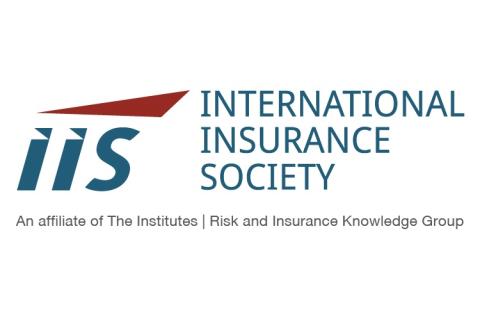Global Concerns Survey: Operational Concerns

Michael Morrissey, President & CEO, International Insurance Society, Inc.
This month we present our third report on the joint IIS and Institutes Global Concerns Survey of senior insurance executives and industry thought leaders around the world. This annual polling of senior insurance executives and other industry thought leaders identifies their greatest concerns; as we put it to them “What keeps you awake at night?”. Their responses are shared with our members via this series of articles, and in normal years at the Global Insurance Forum. Of course the 2020 GIF has had to be cancelled, so these articles are our best way of presenting the interesting survey results to you.
This month we will focus on “Operational Business Concerns” commentary from the survey. Once again, as in our review of Economic and Social & Environmental concerns, the results of the survey, while accurately capturing the priorities of executives at the time, have been overtaken by the realities of operating during the pandemic.
Survey respondents ranked Cybersecurity as their number one Operational concern, and by a wide margin. Insurers have a double cyber exposure: the safety of their own corporate data, as well as that of their policyholders. Insurers have been a favorite target of hackers, and these days many large insurers report identifying a breach attempt literally every minute of every day. Enormous resources have been devoted to protecting the vast trove of data developed by and entrusted to insurance companies, and so the top ranking of Cybersecurity in our Global Concerns Survey is not surprising.
That level of concern, and allocation of financial and human resources to it, has spiked dramatically since the broad outbreak of COVID-19. The principal driver of that heightened worry is the enormous and precipitous shift to Work From Home. No insurance company management can honestly say they were prepared to send more than 90% of their workforce to work at home, for an indeterminate period, in a matter of days. The need to send almost all workers home was, however, a necessary community mitigation strategy to slow the spread of the highly infectious COVID-19. It was an extraordinary challenge that was foreseen in few if any Business Continuity Plan manuals. My conversations with CEOs about this issue revealed that most insurers had a plan, but one that was focused on electrical outages, floods, fires, terrorism and even in some cases a lower level disease outbreak, but nothing like the pandemic.
In addition to the obvious WFH issues like employee physical and mental health, measuring productivity, training and development programs and the like, as well as the impossibility of conducting safety inspections, adjusting major claims and performing medical exams, cybersecurity has become a hot button issue. With what technology were employees working from home? Company-delivered, corporately vetted computers, routers and other equipment? Or in many cases equipment that employees had at home, designed primarily for personal and family use? Even in the former case, the security of networks could be problematic. In the latter, the potential for data breaches is wide open.
In other words, our recent Global Concerns Survey makes it clear that Cybersecurity was already executives’ top Operational issue even before the outbreak of the pandemic, and we can be sure it is still atop the rankings by a wide margin.
There are, of course, other Operational concerns that were and are still on the minds of insurance leaders. Ranking second in our survey was Innovation. There is no less need for innovative thinking in the industry than before the outbreak, and indeed more. To cope with the short term and the longer term changes in our economies, our customer bases and our own organizations, new products, digital distribution methods and internal workforce/workflow processes must be developed, and soon.
Growth was the third ranking Operational concern, and companies’ growth aspirations are now having to be reassessed. Around the world, the abrupt and severe slowdown of economic activity is causing lower premiums for commercial P&C classes like Workers Compensation and Commercial Auto. Personal Lines P&C writers are seeing miles driven decline so sharply that many feel obliged to return premiums for existing policies. Life & Health insurers are restricting their underwriting and accepting fewer applicants, even as buyers show reluctance to apply. More attention is now being paid to retaining as much current premium as possible, more so than thinking about growth.
Data Analytics was a close fourth in our survey rankings, and will be no less important to insurers in the reordered world, as these techniques are deemed to have high potential to reduce expenses and make better underwriting, reserving and claims handing decisions. Competition, Skilled Worker Shortage and privacy of Customer Data were also mentioned by a significant number of executives, but probably fade a bit in prioritization due to the almost total focus on dealing with the pandemic. Perhaps most curious in our survey was that Executive Leadership was the lowest ranking Operational concern of our respondents. Considering the complex and, in many cases unpleasant, decisions facing insurance companies in late 2020 and 2021, it would seem that Executive Leadership should rise to the top.
6.2020

